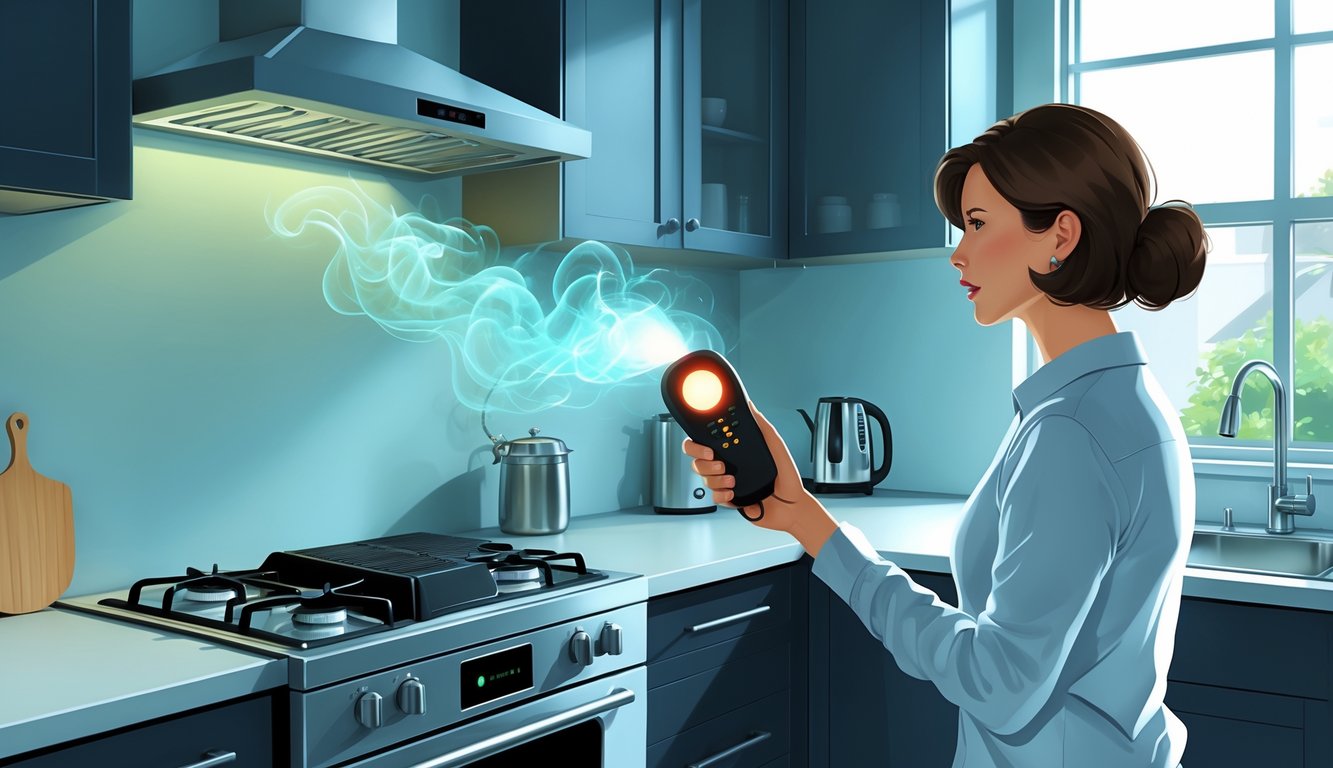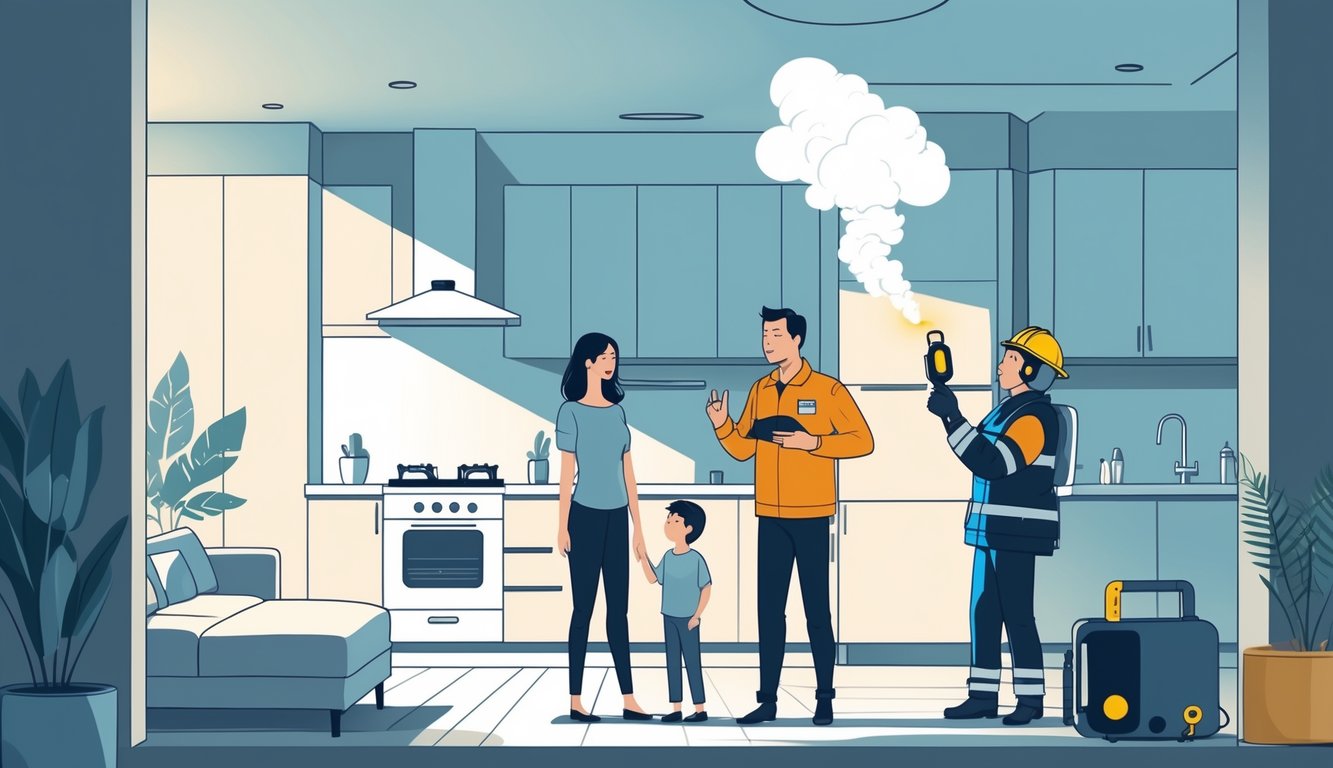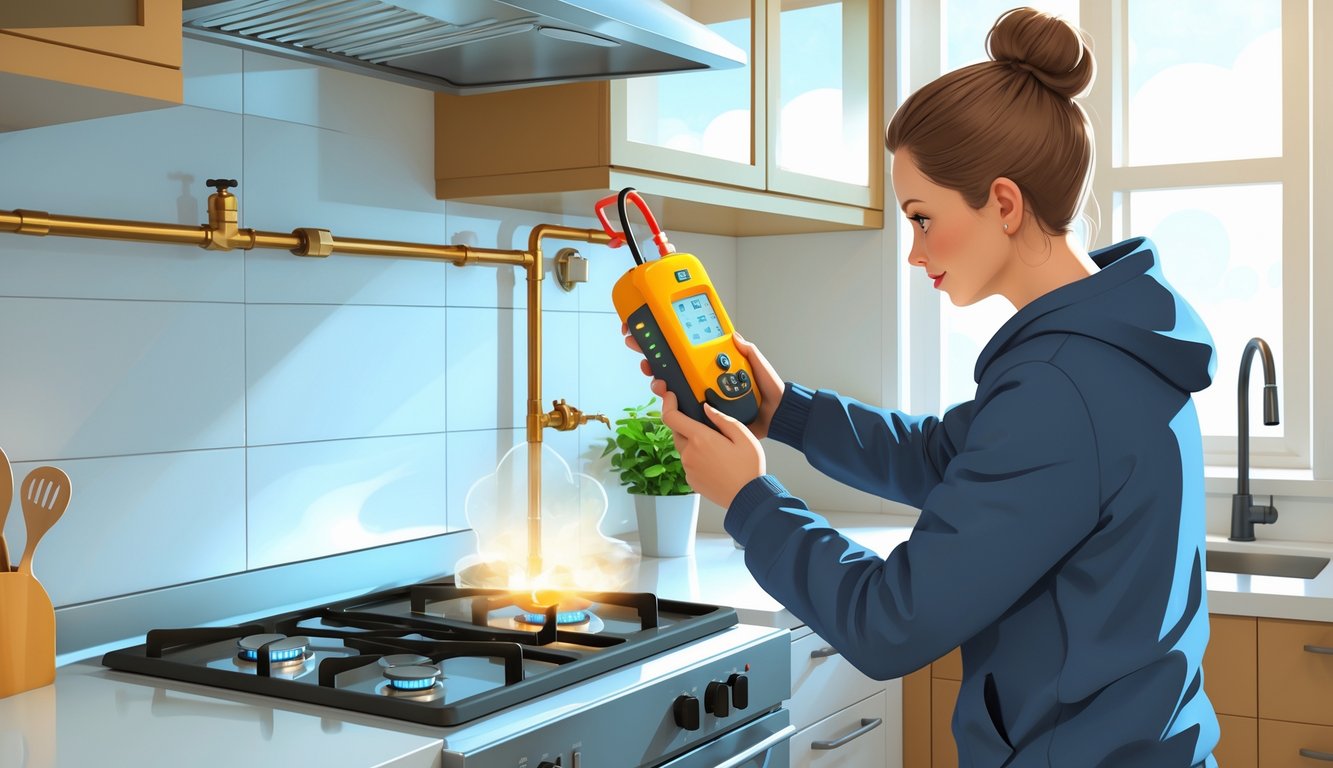
Sudden Headaches or Dizziness
Ever get a headache that only shows up when you’re near the living room vent? Happened to me and a couple friends—thought it was dehydration, but nope. Frequent headaches, dizziness, or nausea at home, with no obvious reason, can totally mean gas leaks. It’s not allergies. I checked the CDC’s carbon monoxide symptoms and, yeah, “air feels heavy” is on there. If everyone in your house starts feeling weird at dinner, maybe don’t blame the takeout. Jason, my HVAC guy, says he gets most calls when families all get woozy at once—usually not flu season, either. He uses a gas detector, but most people just rely on their noses and headaches, which is why stuff gets missed.
Discolored or Dying Indoor Plants
I kill houseplants all the time, but when my pothos went limp overnight, I knew something was up. Plumbing safety guides say gas leaks can suffocate roots, making plants droop or yellow for no reason. It’s easy to blame sunlight or a cold draft, but if one corner keeps killing your plants—especially near heaters or gas lines—maybe it’s not your lack of a green thumb. I once moved all my plants across the room and they perked up. Turns out, the neighbor’s leak was sneaking in through the wall. My neighbor swears by the “glass of water” trick: if it bubbles near a pipe, call someone who knows what they’re doing.
Health Risks and Fire Hazards Linked to Gas Leaks

Forget calmly reading safety tips. Every time a friend mentions headaches and “mystery odors,” I start holding my breath. You can’t just brush off that weird rotten egg smell or the hiss by the water heater—your head will let you know before your house does. Gas leaks mess with your air, your health, and your peace of mind. They don’t care about your carbon monoxide alarm, either. “Rare”? Not even close. CDC won’t shut up about them for a reason.
Carbon Monoxide Poisoning
People always think a headache is just stress—until it’s not. Carbon monoxide is sneaky: no color, no taste, nothing. Fire marshals say about a third of ER carbon monoxide cases (over 50,000 a year in the US) are from busted gas appliances. You start forgetting things, get blurry vision, maybe pass it off as the flu. Makes no sense, but that’s what people do.
Licensed HVAC techs always trash those cheap plug-in CO detectors. They only go off with high concentrations, so if yours is chirping, you’re already in trouble. Pets get weird before you do; if your dog’s glued to the back door, maybe follow his lead. Gas leak health symptoms include nausea and dizziness, but most people never suspect gas. ER visits at 2 a.m.? No thanks. I’d rather be paranoid and get my stuff checked.
Explosion and Fire Dangers
Here’s the nightmare scenario: one little leak, one spark, and suddenly your kitchen’s on the evening news. Gas-air mixtures don’t care about your schedule. Inspectors always warn that even tiny leaks can snowball. Methane floats up, fills the attic, and then—boom. Not just a floor thing.
There’s this dumb myth that natural gas just burns, doesn’t explode. Yeah, tell that to the guy who lost his garage. Home safety organizations blame leaks for thousands of fires and a big chunk of property loss every year. My neighbor’s garage has a new paint job every few months because “the grill only flared up once.” Stop gambling—just get your lines checked. Even those little pilot lights can set off a leak. Physics doesn’t care if you’re careful.
How to Properly Detect Gas Leaks at Home

I keep staring at the wall near my stove, wondering why nobody noticed that faint rotten egg smell last winter. Some of us trust gadgets, others wait for the dog to sneeze. Honestly, who has time for vague advice? Here’s what actually works—and where people screw up.
Using Gas Leak Detectors
How many times have I seen a dead battery in a “smart” gas detector, blinking away for weeks? Too many. Most people just ignore it. Over half of US homes run on natural gas (thanks, EIA), but almost nobody bothers with a proper detector.
I put mine under the kitchen sink, but apparently, the best spot is low to the ground near appliances—not at eye level. Techs like the Kidde Nighthawk plug-in or a handheld UEi CD100A—those pick up leaks before you even notice. Weirdly, nobody tests their detectors monthly, even though they’re supposed to and failure rates spike in summer.
If you want a fancy Wi-Fi detector, read up on “false alarms” first, or you’ll end up chasing phantom beeps like I did (it was my neighbor’s pressure cooker). A good detector beats your nose every time, especially with slow leaks. Some even send push notifications—inevitably during Zoom calls. There’s more on setup and placement at the Hope Plumbing gas leak guide.
DIY Detection Techniques
Look, I’m not saying you should crawl under your house with a candle—honestly, who does that?—but all these apps and gadgets? Sometimes the old tricks just work. Sudsy water: dish soap, tap water, slap it on the pipes, and if you see bubbles, well, congrats, you’ve got a leak. The dog’ll probably try to eat the leftovers, so good luck. Plumbers swear by this, and City Power & Gas explains it, but honestly, it’s not rocket science.
About that “you’ll always smell a gas leak” thing: total myth. If your sinuses are shot, or if it’s a tiny leak, you might not smell anything. They add mercaptan so you notice, but sometimes it’s just… not there. Hissing sounds? Yellow pilot lights? Dead houseplants? I’ve heard all of it from repair guys—some I trust, some who just want to pad the bill. None of it’s foolproof. Some people even check their yard for brown grass patches or weird puddle bubbles after rain—supposedly dead roots mean underground leaks, but who actually remembers to look for that? Not me.
If you’re unsure, just get out, air the place out, and don’t play superhero. Maintenance, fast reactions, and knowing where the shutoff valve is—that’s it. I ask people at parties and nobody knows if it’s behind the dryer, under the stairs, or in some secret spot the last owner never mentioned.